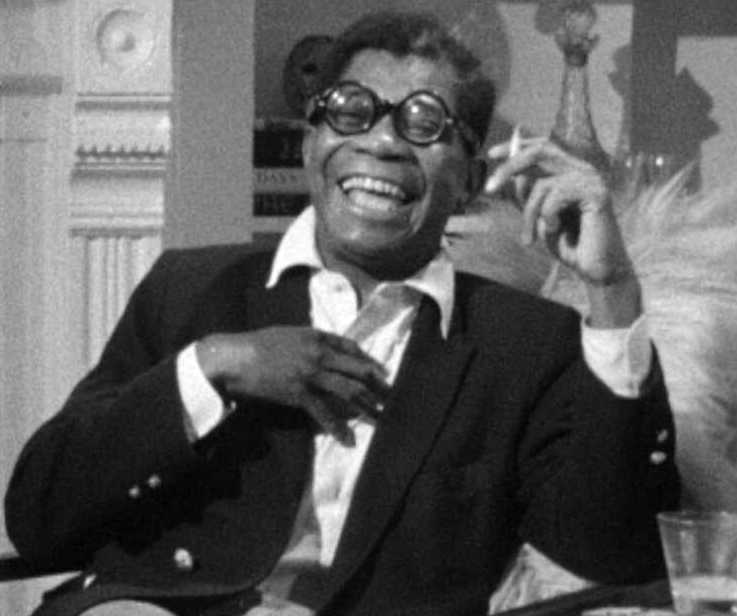Last week I talked about wanting to explore the history of queer cinema. Specifically, explicitly queer cinema. I didn’t want to spend time decoding the countless queer coded characters during the Hays Code era of Hollywood. That’s why this week I was curious about the film Morocco starring Marlene Dietrich. Dietrich was famously bisexual, and Morocco marks the first time that a leading lady (Dietrich) kissed another woman on-screen. While wearing a suit. Which of course caused a sensation at the time. But I watched the scene, and like so many early examples of LGBTQ representation on film, the whole moment was merely a set up for a joke. So I decided to skip ahead several decades to when queer characters were explicitly queer.
To that end, I watched the British film Victim from 1961. Victim was the first film to use the word homosexual on-screen, and it is one of the first films to feature explicitly gay characters. Yes. Characters. As in there were more than one. The film tells the story of a lawyer working to bring down a blackmail scheme against several gay men. The lawyer is gay himself, despite presenting as a happily married man, and he may or may not have been involved with one of the men being blackmailed.
Unfortunately, there are no happy endings for any of the queer characters in this film. Two of the men die, and the film ends with the lawyer knowing his reputation and career are about to be destroyed. But this film is also notable for the sympathetic lens it shines on the plight of gay men in 1960s Britain. Homosexual acts were illegal in Britain until 1967, meaning gay men had a very real reason to fear blackmailers. However, in Victim, it’s very clear that the audience is meant to side with the men being blackmailed. The entire film is a sharp critique of the laws and homophobia in Britain at the time, which is exactly why it was so groundbreaking.
It was also highly controversial. British censors gave it an X rating, while US censors denied the film its seal of approval. But it still went on to become highly influential and socially important. Ironically, its star, Dirk Bogarde, was gay himself, but very much in the closet at the time. And you can see that anguish etched on his otherwise stoic face in nearly every scene. Bogarde was one of the most popular leading actors at the time of the film’s release, so it is extraordinary that he would take such a risk. He must have thought the film was worth it.
I then watched the documentary film Portrait of Jason, and I think I’m still processing it. It was released in 1967, two years before Stonewall, and it contains highlights of a 12 hour interview between filmmaker Shirley Clarke and Jason Holliday, a gay, Black, sex worker. And I honestly don’t know what to say about this film. Holliday is an extraordinary storyteller, and listening to him talk about his life is like getting a glimpse into the racial, social, and sexual politics of 60s America. But he’s also drinking throughout the whole film. And as he gets progressively drunker, the film begins to feel more and more exploitative. Holliday later claimed that the whole film was just one big performance, and if it was, it’s one for the ages. But there were plenty of moments that felt real. Uncomfortably real. I still don’t know how I feel about it.
That’s why I decided to end the week with a film that couldn’t be more different. It’s also quite possibly my new favourite film. Period. I’m talking, of course, about the new film Fire Island. If you haven’t seen it yet, get thee to Hulu. Or Disney+. Or wherever it happens to be streaming where you are. It is hilariously funny, wonderfully raunchy, and easily one of the best times I’ve had watching a movie in months. It’s a glorious celebration of queer relationships, whether romantic or platonic, and in particular focuses on the experiences of gay Asian men, stories that Hollywood to date has blatantly ignored. It’s pointed and sharp in its commentary, but also just a hell of a lot of fun. Everyone should watch Fire Island. I mean it.
That’s it for this week. See you next week as I move away from Hollywood and explore queer cinema around the world.
Suggestions for artists I should check out? Please contact me with your ideas. I hope you enjoyed your daily helping of art!



